#EUDebatesCafe: Authentication and electronic signature tools in the Republic of Moldova: realities and perspectives
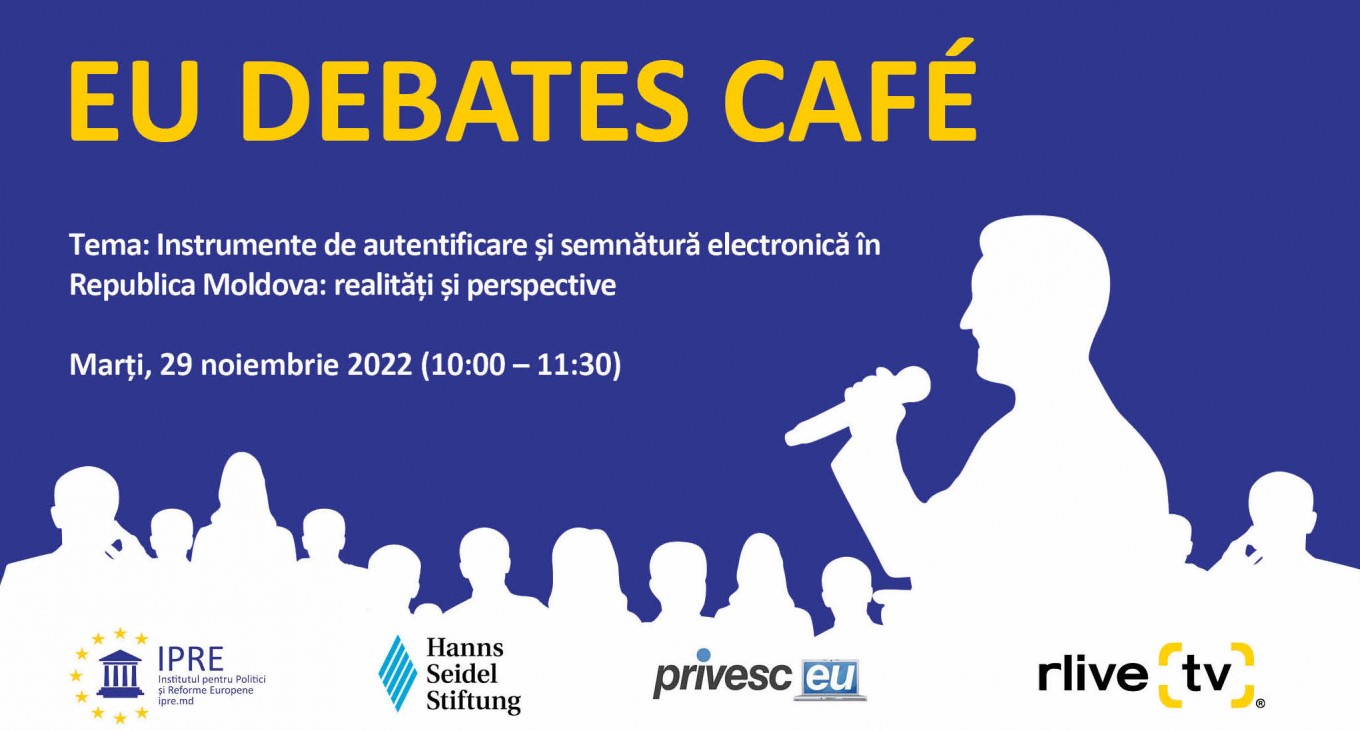
The Institute for European Policies and Reforms (IPRE), in partnership and with the support of the Hanns Seidel Foundation, organized on Tuesday, November 29, 2022, the seventh public debate of this year in the #EUDebatesCafe format, entitled “Authentication tools and electronic signature in the Republic of Moldova: realities and perspectives”.
The guests at the event, which was moderated by Victor Guzun, digitalization policy expert, IPRE, spoke about the most important elements related to the use of authentication and digital signature tools existing from the perspective of authorities and users, the development of new digital signature tools, the relevance of these tools for the digital transformation of the Republic of Moldova, barriers in their wide use, but also actions that it would increase the use of digital signature.
Below, we propose some of the main speeches of the speakers.
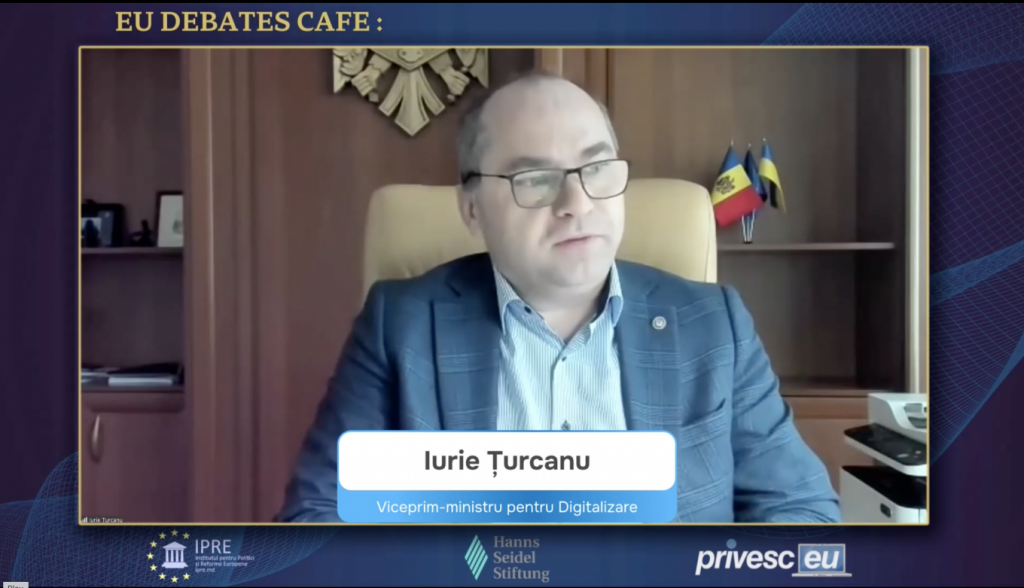
IURIE ȚURCANU, Deputy Prime Minister for Digitization: “One of the basic problems in using the electronic signature is that it must be recognized later by the state institutions. If we generally talk about what we need electronic identity, then it is about being able to consume digital tools. These services give you the possibility to remotely interact with state institutions, apply to services and get certain results, such as certificates, permissions and official documents. In this context, we have also adjusted the regulatory, legal framework, such as the Digital Services Act, which says that services in 2023 will become much more digital, but not on paper. However, there are a number of factors that broadly prevent the adoption of these digital services. There are two big hurdles. Thus, most of the time, the person does not have the digital, identity key, but he is also often unmotivated to consume digital services because it is not stipulated that the electronic document will be recognized by the state authorities. With the implementation of the electronic identity system, which we are working on, such as MobiSign, to eliminate these barriers and for the citizen to be able to benefit from as many digital services as possible.”
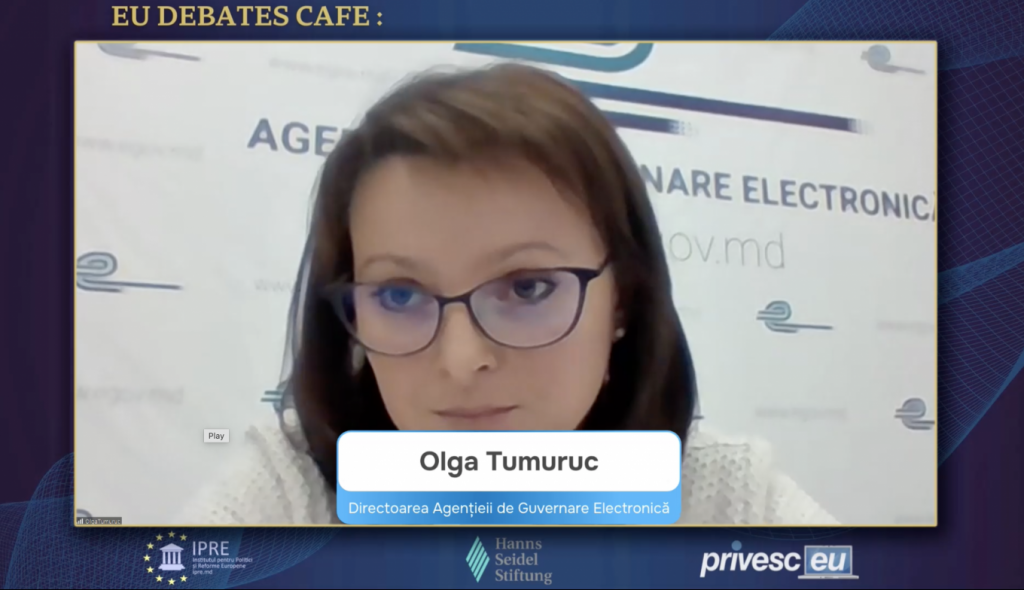
OLGA TUMURUC, Director, e-Government Agency: “Efforts in popularizing electronic identity and using electronic signature must be, first of all, a priority of state institutions, not just of a ministry. We cannot expect from citizens confidence in the electronic signature when they know that the state authorities are not doing it and, moreover, they refuse to work with requests that come from the citizens. A very important role here is played by the justice sector because, for example, the business will not sign contracts at national level in electronic format when it is not certain that when a case arises in court, this document will be recognized with full legal value. Although it is a complex field, not at all simple, we have to devote much more effort to the justice sector because trust in the electronic signature is directly linked to the understanding that the justice sector has in these tools.”
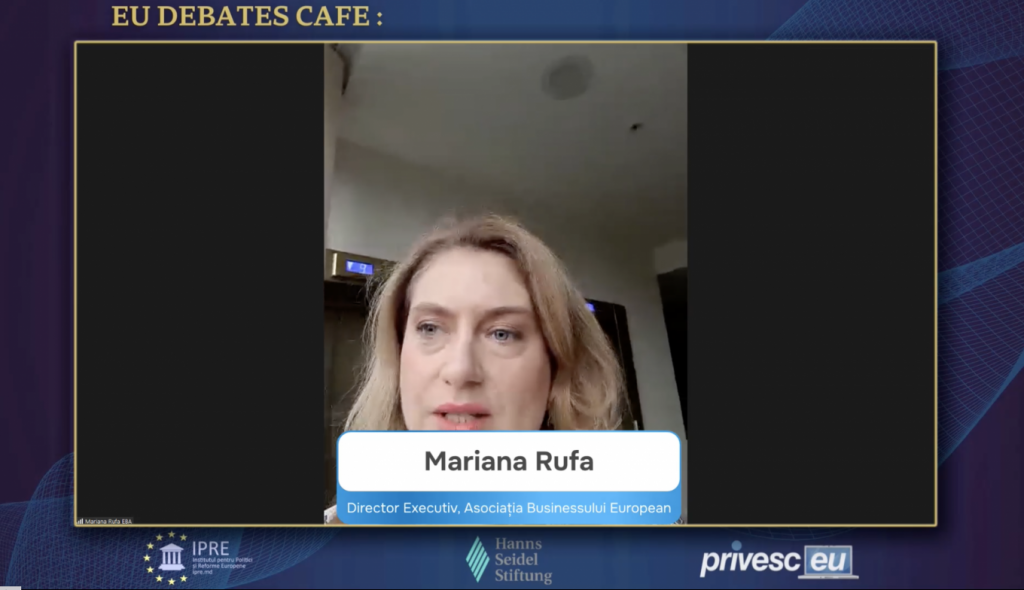
MARIANA RUFA, Executive Director, European Business Association: “The business probably like no other is aware of the importance and necessity and usefulness of the digital signature. I believe that it must be helped, supported by the public sector to implement and support the development and escalation of the use of this digital signature tool at the level of public authorities, both at central and local level. COVID-19 has constrained us all and already at least we, the business, are trying to communicate with the public authorities, including by digitally signing the letters addressed, but when we talk at the level of networking, for example about the contracts that are the basis of international transactions, things are more complicated. Unfortunately, at the level of the banking sector, they are still not accepted and there is no practice of using digitally signed contracts as a basis when we talk about international transactions. Because a mechanism is needed that would verify the authenticity of the signature, and at the moment in the Republic of Moldova such a mechanism exists only for transactions on the territory of the Republic of Moldova. If there were a platform that would support the possibility of verifying these signatures, things internationally would unlock a bit. The business community and public authorities must go together, in one step, on everything that means digital signature tools. If we do not implement digitization aspects within a reasonable time, we risk losing certain investments in this area.”
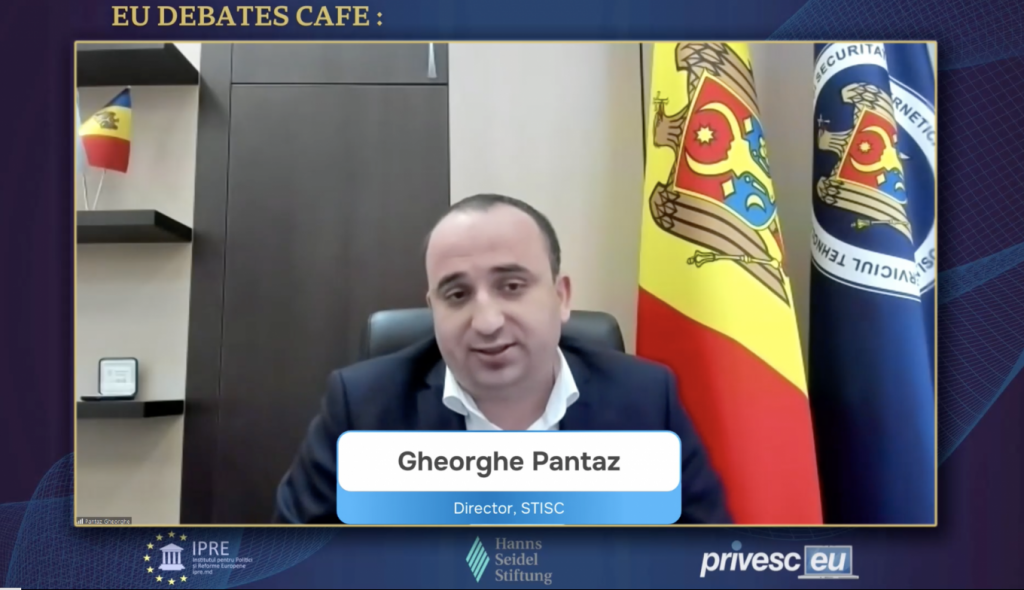
GHEORGHE PANTAZ, Director, Information Technology and Cyber Security Service (STISC): “STISC, as a certification center, which with regret I must confess to you, is not an absolute element of praise. In the Republic of Moldova, in a democratic country, there is only one research center accredited and empowered to issue qualified advanced electronic signatures. For the state, this element may be good from the point of view of saving public money, but when we talk about the private sector, this is a problem being that if there is no competition, we have no quality and accessibility. Perhaps this has been a failure over the years, including in the process of stimulating the digitalization of processes in the private sector. If in the public sector quite a lot of work is done with a very rich agenda in this regard, in the private sector in places, it is actually holding back. And if we take as a reference, the small actions that have been taken are basically only seen in the financial sector, maybe also in the banking sector where there has been some attempt to solve those gaps by making a small infrastructure of public keys, only at the bank level, which has never stimulated the cross use of this signature and has not given a legal value in essence.”
For more details, you can watch the video of the event on the privesc.eu here and on Reality Live here.
The event was organized within the project “EU DEBATES CAFÉ: Advancing knowledge and expertise on EU institutions and policies in the Republic of Moldova”, implemented by IPRE, in cooperation with the Hanns Seidel Foundation in the Republic of Moldova and with the financial support of the Federal Ministry of Foreign Affairs of Germany.

